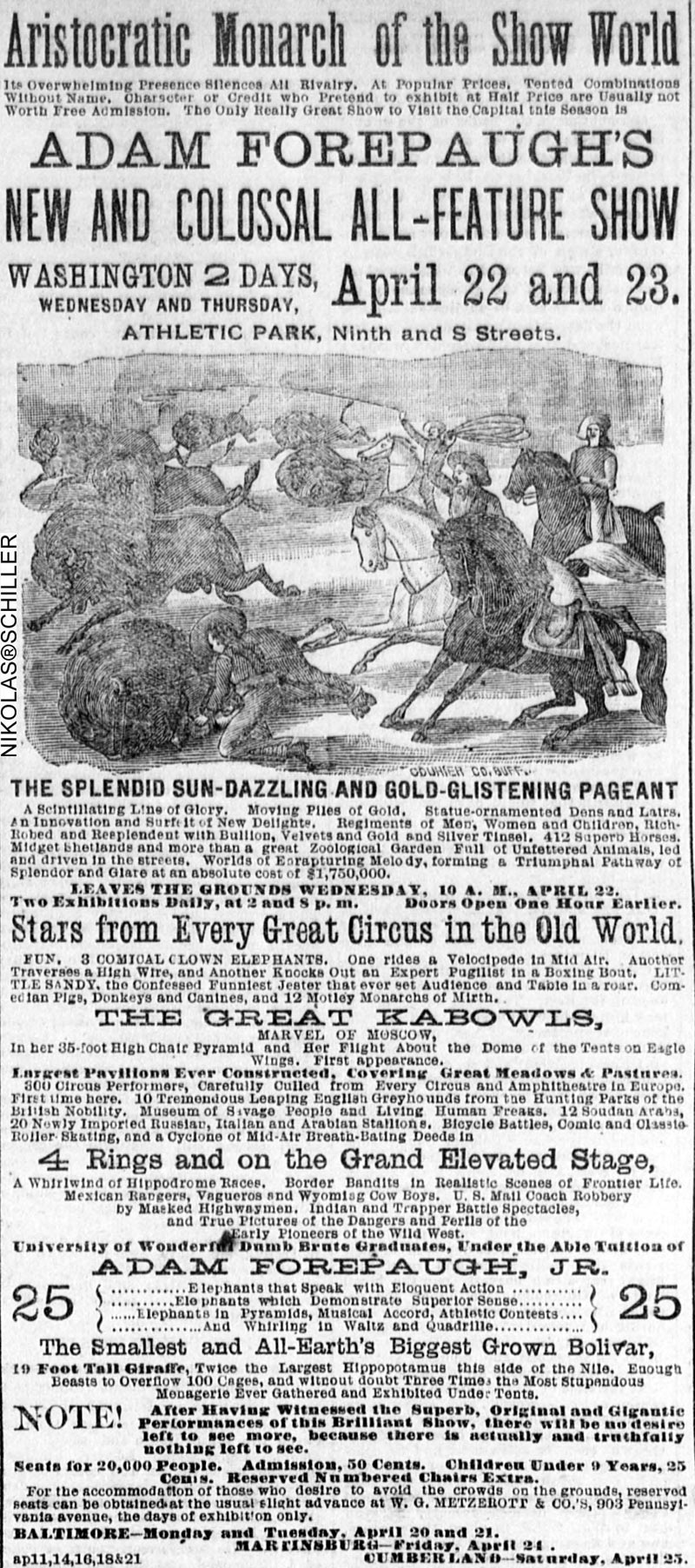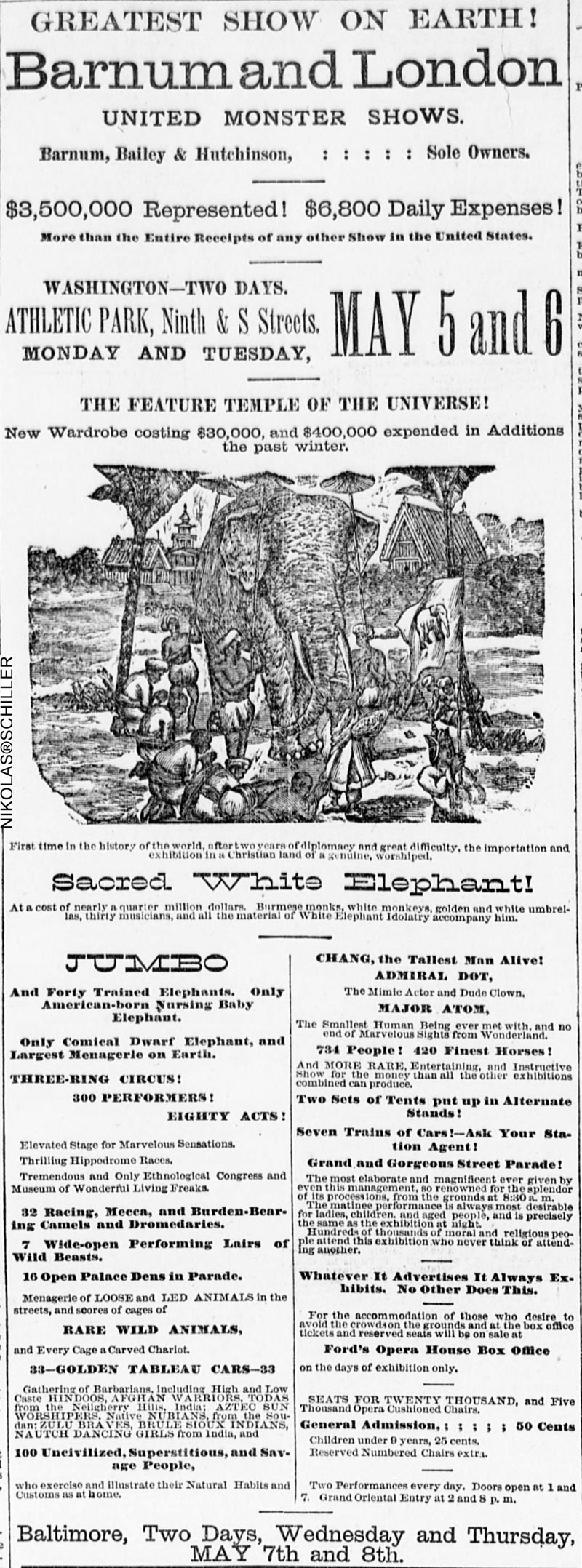As I mentioned before, I thought it was interesting that the Senate would even consider a referendum on Prohibition in the District of Columbia. As it turns out, the Senate tyrannically voted the District of Columbia ‘dry’ without the referendum. Another interesting note that was definitely not taught to me in my American history class was that at the time of the passage of the 18th Amendment to the United States Constitution (aka Prohibition) most jurisdictions in America had already voted on whether they wanted to be ‘wet’ or ‘dry’, with most jurisdictions throughout the United States choosing be ‘dry’. At the end of the article the author mentions a Prohibition Map of the United States, but I have yet to find it on-line. If I do find it, I’ll be sure to post it here.
SENATES VOTES, 55-32 FOR DRY WASHINGTON
Tie Vote on District of Columbia Bill Indicates National Prohibition’s Standing.
CAME OVER REFERENDUM
Only 355 Wet Counties Left in the 2,543 in All the States of the Union, W.H. Anderson Says.
WASHINGTON, Jan. 9 – The Sheppard bill for prohibition in the District of Columbia after Nov. 1 was passed by the Senate today and sent to the House after a long fight. The vote was 55 to 32. The decision followed the rejection of the Underwood amendment, proposing to submit the question to a popular referendum, by a tie vote of 43 to 43. As the Vice President was not present to cast the deciding ballot the amendment was lost under a rule of the Senate.
The vote on the referendum is being considered tonight as a fair indication of the line-up in the Senate on the proposed referendum is being considered tonight as a fair indication of the line-up in the Senate on the proposed referendum regarding a constitutional amendment for national prohibition which has been reported favorably by the Judiciary Committee, and which would require a two-thirds vote to pass.
Neither the vote on the referendum amendment nor that on the passage of the bill was on party lines. There were 26 Democrats and 17 Republicans voting for the referendum and 23 Democrats and 20 Republicans voting against it. Most of the Republicans of the Progressive group voted against it. For the bill itself there were 28 Democratic and 27 Republican votes, with 22 Democrats and 10 Republicans against it. All the Progressives voted for passage.
The says that after Nov. 1 “no person or persons, or any house, company, association, club or corporation, his, its or their agents, officers, clerks, or servants, directly or indirectly, shall, in the District of Columbia, manufacture for sale, or gift, import for sale, offer for sale, keep for sale, traffic in, barter, export, ship out of the District of Columbia or exchange for goods or merchandise, or solicit or receive orders for the purchase of any alcoholic liquors for beverage purposes or for any other than scientific, medicinal, pharmaceutical, mechanical, sacramental or other non-beverage purposes.”
Scientific Needs Recognized
Another section says the measure cannot be construed to prevent the manufacture, importation, exportation or sale of denatured methyl alcohol or of ethyl alcohol for scientific, medical, and like purposes, but their manufacture and sale are limited to licensed druggists or manufacturers. The so-called locker system is specifically forbidden.
All common carriers bringing intoxicants into the District are required to keep a record of the shipper and consignee, who must make affidavit that the intoxicants are for personal use.
Heavy penalties are provided for violations, including a provision aimed at physicians who prescribe liquor for patients without a cause. Efforts to forbid absolutely manufacture in the District and from it were beaten without a a record vote. An amendment by Senator Phelan which would permit sale of “wine, ale, beer, and porter” also was defeated.
The vote was preceded by little debate on the terms of the bill, but many explanations were given by Senators of their reasons for voting for and against the Underwood referendum amendment.
There were fewer absentees than at any other vote this session. During the several hours after the bill automatically came up and before the vote was taken every seat in every gallery except that reserved for the Diplomatic Corps was filled, and scores were standing or sitting in the aisles. About half the spectators were women. The crowd made only one real demonstration, that of hearty approval when the final vote was announced.
[ Note transcribed: a listing of the Senators who voted For and Against the Referendum ]
PREDICTS A “DRY” NATION
W.H. Anderson Expects National Prohibition in Ten Years
“It looks like very dry times ahead, and in the very near future. The upholding of the Webb-Kenyon bill by the Supreme Court will precipitate a regular epidemic of State laws restricting interstate shipment of liquor, and in ten years I believe this country will be absolutely dry.”
This was the comment of William H. Anderson, Superintendent of the New York wing of the Anti-Saloon League, yesterday, on the action of the United States Supreme Court Monday, when it held the law prohibiting shipment of liquor from wet to dry States to be valid. The decision brought joy to the camps of all the different organizations that have been fighting liquor in various ways, some of them advocating total prohibition, some local option, and others temperance.
“This is rapid progress,” Mr. Anderson said. “The public scarcely realizes to what extent the United States has gone dry in recent years. All of the wet territory in this country today could be put into the State of Texas. Of the 2,543 counties in all of the States of the Union, there are only 355 wet counties left, and some of these are partly dry.
“It now appears exceedingly probable that Congress will submit the national prohibition amendment to the voters of the country before 1920.”
Mr. Anderson said that the Webb-Kenyon bill itself would not prevent liquor from being shipped to most of the present dry States, as only three of four of these had passed laws absolutely prohibiting shipments of liquor. But, Mr. Anderson said, the action of the Supreme Court could not have come at a more opportune time, as most of the State Legislatures were now in session.
The National Executive Committee of the Anti-Saloon League will hold a meeting tomorrow in Washington.
A map obtained yesterday from the Anti-Saloon League here shows graphically the onward march of prohibition throughout the United States. As done in black and white- the white representing the “dry” States, and the black the “wet” – New Jersey stands out as the only State in the Union where liquor is sold throughout all its confines. Next, as a States where license predominates, comes Nevada, where liquor is sold almost universally with the exception of two “dry” spots, one on the Northern border and one near the California line.
Entirely dry are Maine, Virginia, West Virginia, North Carolina, South Carolina, Tennessee, George, Alabama, Michigan, Arkansas, Oklahoma, Kansas, Nebraska, Iowa, North Dakota, South Dakota, Colorado, Arizona, Oregon, Idaho, Montana, and Washington. New York State is almost half “dry”; Pennsylvania more than half. The “dry” territory spreads over almost half Wisconsin. Minnesota is roughly a third “dry,” and the anti-liquor forces have conquered much of California.
States in which local option has driven nearly out, but which remain “wet” as States, are Utah, Wyoming, New Mexico, Texas, Florida, and Delaware.
Illinois, Indiana, and Ohio are dotted with “wet” spots, but the “dry” territory predominates.






















